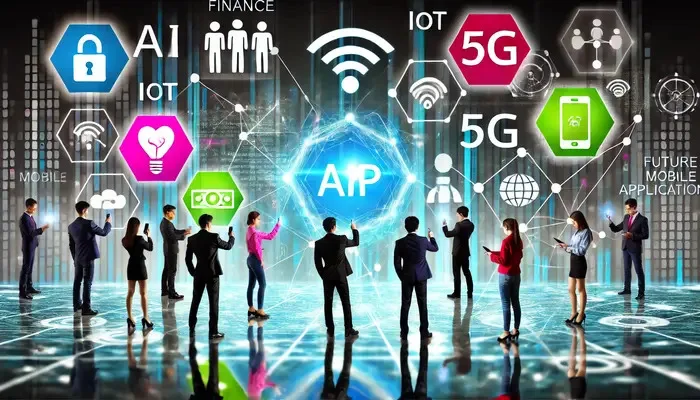
The Future of Mobile Apps: Forecasts and Expectations
The mobile app industry has evolved rapidly over the past decade, transforming from simple tools and games to complex platforms that drive major sectors of the global economy. As we look ahead, understanding current trends and future forecasts can provide valuable insights for developers, businesses, and consumers alike.
Current Trends in Mobile Applications
The mobile app landscape today is characterized by several key trends:
AI and Machine Learning Integration: Mobile apps are increasingly leveraging artificial intelligence (AI) and machine learning to offer personalized user experiences. From recommendation engines to virtual assistants, AI is enhancing the functionality and user engagement of apps.
IoT Connectivity: The Internet of Things (IoT) is creating interconnected ecosystems where mobile apps serve as control hubs for various smart devices, from home automation systems to wearable technology.
Augmented Reality (AR) and Virtual Reality (VR): AR and VR technologies are gaining traction in mobile applications, providing immersive experiences in gaming, education, and retail.
Mobile Payment Solutions: The rise of mobile wallets and payment platforms such as Apple Pay, Google Wallet, and various fintech applications is revolutionizing how users transact and manage finances.
Enhanced Security: With increasing cyber threats, mobile apps are focusing more on incorporating advanced security features like biometric authentication, encryption, and secure data storage.
Predictions for the Future of Mobile Applications
Looking forward, several predictions outline the future trajectory of mobile apps:
5G Technology: The deployment of 5G networks will significantly enhance the speed and connectivity of mobile applications, enabling more robust and responsive user experiences. This will drive advancements in real-time data processing, high-definition streaming, and enhanced AR/VR functionalities.
Increased Use of AI and Automation: AI will become even more integral to mobile apps, not just for personalization but also for automating complex tasks, predictive analytics, and improving app performance and maintenance through AI-driven optimizations.
Progressive Web Apps (PWAs): PWAs will continue to rise in popularity due to their ability to offer a seamless user experience across different devices and platforms without the need for separate native app development.
Blockchain Integration: Blockchain technology will find more applications in enhancing app security, creating decentralized applications (dApps), and facilitating transparent and secure transactions, especially in sectors like finance and healthcare.
Focus on User-Centric Design: Future apps will prioritize user experience (UX) more than ever, with a focus on intuitive interfaces, accessibility features, and tailored user journeys.

User Expectations of Future Mobile Applications
As technology advances, user expectations are also evolving:
Seamless Performance: Users expect apps to be fast, reliable, and free of glitches. Any lag or downtime can lead to dissatisfaction and abandonment.
Personalization: Personalized content and recommendations based on user behavior, preferences, and needs are becoming a standard expectation.
Enhanced Privacy and Security: With growing awareness of data privacy, users demand robust security measures to protect their personal information. Transparent privacy policies and data handling practices are critical.
Cross-Platform Functionality: Users want apps that offer a consistent experience across various devices, including smartphones, tablets, and desktops.
Sustainable and Ethical Practices: There is a growing expectation for apps to be developed and maintained sustainably, with consideration for ethical implications, especially concerning data usage and AI ethics.
Impact of New Technologies on Mobile App Business Models
New technologies are not only shaping the functionality of mobile apps but also transforming business models:
Subscription-Based Models: With the rise of premium features and exclusive content, many apps are adopting subscription-based models, ensuring a steady revenue stream.
Freemium Models: Offering basic features for free while charging for advanced functionalities is a common strategy, allowing users to experience the app before committing financially.
In-App Purchases and Microtransactions: Especially prevalent in gaming and social apps, these models generate significant revenue by offering users the ability to purchase virtual goods or additional content.
Ad-Supported Models: While ads remain a primary revenue source, the focus is shifting towards more targeted and less intrusive ad experiences, leveraging AI for better ad personalization.
Partnerships and Integrations: Collaborations with other tech companies and service providers can expand an app’s ecosystem, offering users more integrated and comprehensive solutions.
The future of mobile applications is poised for remarkable growth and transformation, driven by technological advancements and evolving user expectations. By staying ahead of current trends and anticipating future developments, businesses can create innovative, user-friendly, and secure mobile apps that meet the demands of tomorrow’s digital landscape.




